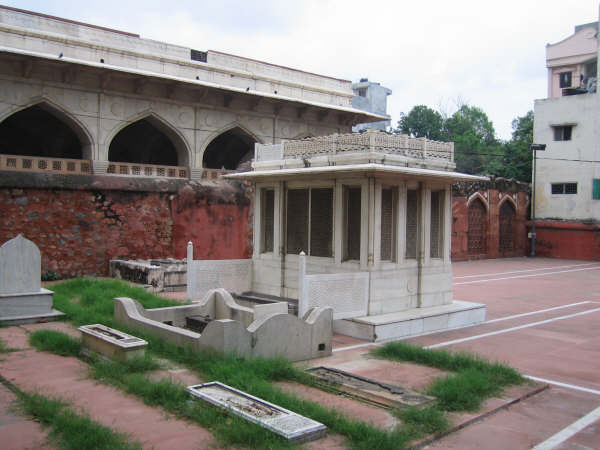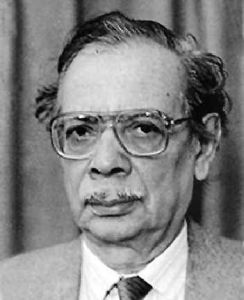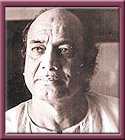Strong Disclaimer: This post is written purely "for myself". I know some will be touched by it--in whatever way--but if you're put off by either metaphysics, tasawwuf (Sufism), abstractions, or weird, personal transliteration schemes, PLEASE, PLEASE, do not read on. I really don't want to get into detailed discussions of any kind.
There are moments when one just wants to let go; to be lost in something. Something deep. When that happens, I often find myself gravitating to
Qawwali, the Muslim mystic musical art form of "
Sama" in its South Asian incarnation.
There's one piece, in particular, that I have been promising myself I will translate, render, if you will, into English and post, but just haven't had the energy and bandwidth to sit down and apply myself to the task.
So I just got home about 11 pm tonight (technically yesterday at this point) after attending, I guess, what you'd call a political meeting. After the meeting, I got into a rather refreshingly intelligent conversation with a relatively new friend. By the time I got home, and had checked in on the kids, and sat down to dinner, like I said, I was in a mood that was definitely leaning towards
mu'arfa,
irfan,
tasawwuf, the metaphysical, or whatever you want to call it. So I turned to one of the only two bookmarks I have in the Real Player on my Mac at home.
And the first through, I just got lost listening to
this piece. By the end of it, I was definitely close to a "
haal", the Sufi version of what our US brothers and sisters would call "being in the zone", "the flow", and so on. And I am not even a formal
Sufi. For a traditional "desi" like me (a South Asian), that is a title reserved for some attainment in the metaphysical realm. I am just someone who, I will admit, has an inclination in that direction and, frankly, have been too chicken to formally step on the "tareeq", or Way.
The piece just captures the mood I am in perfectly; the frustration with
Naseh, The Preachy Folks, and their obsession with preaching and obsessing with enjoining moral conduct; the reference to the Wine of Truth's greatest bartenders (others use the word "cup bearers", but let's get with the 21st of Our Lord, The Prophet of Divine Love, shall we?) being exactly in Karbala, Najaf, and Samarra; and, of course, the frustration with folks who interpret the references to Wine, and Love in "our" language as moonshine (how else do I translate "
t-harra"?) and carnal lust...
So then I looped back and transcribed the parts of it that I think really should be brought to the Rumi- and Hafiz- and Khayyam-in-English-reading public. I am going to try and do the translation some time later. But if you care to, and understand Urdu and/or the languages around it in the linguistic geography (like Hindi and Dakkani and Awadhi and...), do take a read to the following...and/or just watch this space for a translation.
The piece is almost universally referred to as "ha'ey kambakhth thoo nay pee hee nahee!" (Oh! You Unfortunate Wretch! You have not Imbibed!) Here are my selected excerpts. First the prologue, itself one the most deliciously intense tongue twisters in the Urdu language:
samajh samajhna samajh kay samjhoe
samajh samajhna bhee aik samajh hai
samajh samajh kay bhee joe na samjhai
mairee samajh main woe na samajh hai
and then the Qawwali itself, sung at the link above by the person who people who connect with the art on a very unvarnished, unapologetic level, as about the greatest proponent of that form in the 20th Century;
Aziz Mian:
lutf-e-mai tujh say kya kahoon, nadaaN
(aray) ha'ey kambakhth thoo nay pee hee nahee!
x x
bathla'ey dhatha hoon thujhay maikhaanon ka patha
batha-o-kazmain, khurasan, saamara
khurshid mudha'a maira burj-e-sharaf main hai
aik saaqi karbala main maira, aik najaf main hai
x x
mairay shairon kay haqeeqath main na maanee samjha
badha-e-haq koe thoo angoor ka paanee samjha
thoo nahee jaantha arbab-e-thariqath kay usool
thayray bayhoodha sawaalaath sar-a-sar hain fizool
thoo nahee jaantha paymana kisay kehthay hain
thoo nahee jaantha maykhana kisay kehthay hain
isthaylaahaath-e-thasawwuf kee nahee thujh koe khabar
faqr kee raah main jahaan miltha hai jahaan kaif-e-nazar
kot-chashmi say thujhai k-hotee k-haree lagthee hai
mai-e-irfan bhee thujhay laal paree lagthee hai
ha'ey kambakhth thoo nay pee hee nahee!
x x
ahl-e-daanish nay thairay zehen ko kaisa samj-ha
baadha-e-shair koe jis dhum thoonay t-harra samjha
mai-e-tauheed kee main thoe wazahath kee th-hee
thoo na samj-hay aray nadaan yay qismath thairee
rumi-o-hafiz-o-khayyam ka dhaik-ha hai kalaam
jaam-o-meena kay libadha main thareeqath th-hee thamaam
naseha thuj-hai naseehath kay siwaa kaam nahee
jaam main gharq na kardhoon thoe maira naam nahee!
x x
(yay) Allah ki inayath hai kay main saif zubaaan hoon
Aur naasay, thairay liyay main koh-e-garaan hoon
I should put that last couplet in my email signature...once I have a translation, I guess...
Technorati tags applicable to this post: Tasawwuf - Sufi - Sufism - Aziz Mian - Sufi - Rumi - Hafez - Hafiz - Khayyam - Divine Love - Moderate Muslims - Progressive Muslims









